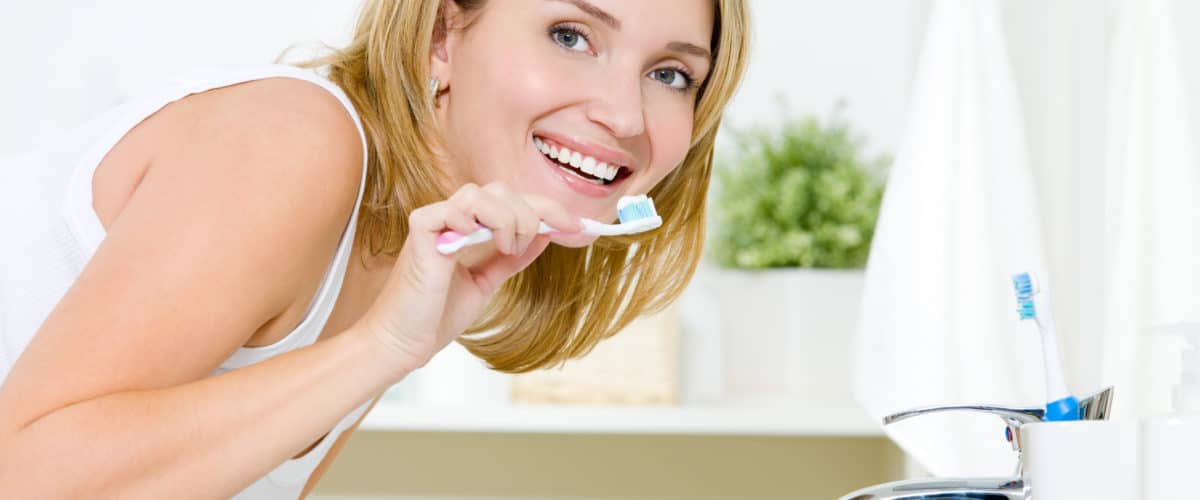While evaluating your family’s oral hygiene practices, it’s important to consider whether or not mouthwash should be a staple in your dental routine. Many dentists recommend using various kinds of mouthwash on a daily basis depending upon the health of your teeth and gums. From reducing cavities to tooth whitening, fighting gum disease to freshening breath, the right type of mouthwash can make a vast improvement in the overall health and appearance of your pearly whites.
Adults will benefit greatly from the effects of regular mouthwash use, but it’s not an alternative to traditional brushing and flossing. Your dentist can advise you on an oral regimen tailored to your dental needs, and in most cases, using a rinse will nicely complement an existing routine.
Since most washes include alcohol, children under the age of six are not recommended use. Still, if your older child is able to rinse without swallowing, many dentists will suggest a children’s variety with a healthy dose of fluoride.
What kind of mouthwash should I use?
Antiseptic Mouthwash
Regular use of an antiseptic variety of rinse is great for killing germs associated with periodontal disease. Frequent users also experience fresher breath and overall better teeth and gum health. In particular, the active ingredients in a typical antiseptic are great for removing plaque and preventing gingivitis.
Fluoride Mouthwash
To prevent tooth decay, many health-conscious people complement their routine by gargling a fluoride mouthwash after brushing. A reputable brand of fluoride mouthwash, when used daily, can harden the surface of your teeth, restoring minerals and protecting them from harmful acids.
Plaque-fighting Mouthwash
A mouthwash with an anti-plaque agent is great for individuals prone to gingivitis. The active ingredients impede the formation of plaque and help loosen existing buildup on the surface of teeth. Unfortunately, prolonged use can stain their appearance, so it’s smart to always consult with a professional before committing to a routine.
Desensitizing Mouthwash
Sufferers of constant pain in their mouths often have a deep-seeded oral problem that regular brushing cannot relieve. New types of mouthwash boast desensitizing ingredients that reduce nerve sensitivity, eliminating discomfort. A dentist can help recommend a brand that may reduce your tooth sensitivity.
Whitening Mouthwash
Many varieties of mouthwash contain multiple disease-fighting ingredients, and in today’s appearance-driven world, whitening is another convenient effect. Mild stains or yellowing of the teeth can improve drastically by using products with safe bleaching agents. Always consult with a professional before taking a cosmetic approach to maintaining your teeth.
See a family dentistry or cosmetic dentistry professional for advisement on how mouthwash may enhance your family’s oral hygiene.




